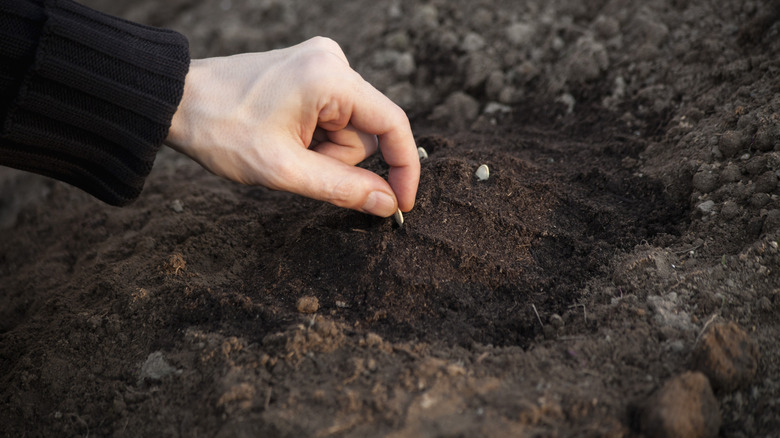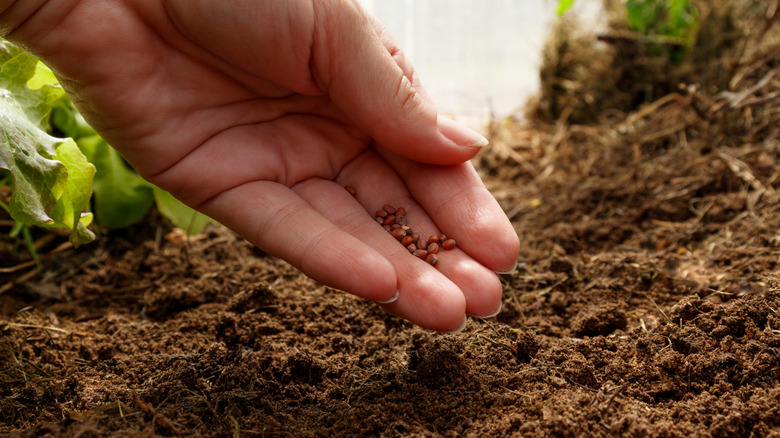What To Do If You've Planted Seeds Too Deep
Knowing how and when to direct sow seeds in your garden is a fundamental skill for any gardener looking to cultivate a thriving and productive space. Planting seeds that don't sprout is exceptionally disappointing. There can be many factors causing this problem, one of which is planting seeds too deep in the soil. When seeds are planted too deep, the little shoots that they sprout won't be able to access the surface where the sunlight and air are, causing the seeds to rot. If you've planted your seeds too deep, don't fret — there are some options. Tiffany Selvey, House Digest's Garden Editor and in-house Master Gardener, explains, "If you discover you have planted your seeds at the wrong depth, how you respond will depend on how long it's been since those seeds were planted. You may be able to dig them up and replant them, or you may need to plant new seeds."
The general rule of thumb for planting larger seeds is to plant them at a depth roughly two to three times the seed's width for seeds. For seeds smaller than one inch in diameter, they can be placed directly on loosened soil. If you're a beginner gardener, try the genius bottle cap hack that makes starting seeds easy to help you plant them at the perfect depth every time. Selvey shares, "These general rules aren't always correct. Plant your seeds at the depth according to the seed packet, if one is available, for the best chance of germination."
How to ensure your seeds sprout
"A tell-tale sign that you've planted seeds too deep is that those seeds aren't germinating in your garden as expected," Selvey tells us. Your next step depends on how recently you've planted the seeds. "If you have just placed your seeds in the ground and then discovered you planted them too deeply, you can dig them back up and replant if it's just been a day or so. However, this only works for large seeds that you can easily see, like squash or beans." After you've rescued the seeds carefully, you can replant them at the correct depth. "Smaller seeds, like lettuce or beets, aren't likely to be salvageable," Selvey states. "They're simply too small to collect from below the soil."
Before you give up, research how long it typically takes the seeds you've planted to germinate. If you've waited beyond the "days to germinate range," it might be best to plant a new batch of seeds at the correct depth. Luckily, seeds are inexpensive and easy to sow, so you don't have to worry about much wasted money or time.

